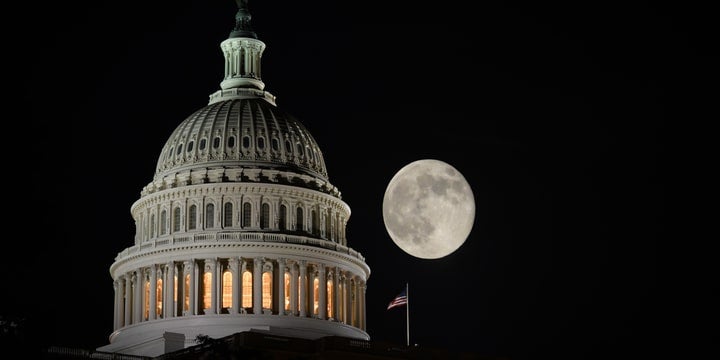The Cost of Big Government

If you work for a living, odds are you’ve looked at your paycheck at the end of the month and been annoyed at how much of your money the federal government takes. And as more time passes, it seems like big government continues to take more and more of your hard earned money. Under President Trump, for the first time in a long time, this seemed to change. The Trump Tax Cuts were a breath of fresh air, after 8 years of Barack Obama’s big government policies.
But, as 2020 looms, Democrats are poised to institute even larger big government policies, if they win the Presidency. And despite their grandiose promises, one thing is clear, the Democrats’ radical big government policies would inevitably lead to a tax increase on ALL Americans.
The Heritage Foundation breaks down the price of big government:
The United States is a low-tax country compared to its European allies, especially for lower-income and middle-income workers. Keeping taxes low should be a primary goal of lawmakers. However, low taxes are not sustainable if America continues to move toward a European-style social welfare system.
Paying for the currently projected government spending will require large tax increases on all Americans. Paying for new entitlement programs, such as Medicare for All, free college, a national job guarantee, or paid family and medical leave, will require yet higher taxes.
It is mathematically impossible to pay for large new spending programs with tax increases only on high-income Americans.
Under an expanded government welfare system, middle-class Americans should expect their taxes to increase dramatically. In Europe, single workers making $40,000 are left with $22,467 of personal income after taxes. In the United States, the same worker would have almost $6,000 more, or $28,352, in useable income after taxes.
The American people already pay enough in taxes. The LAST thing we need, are 2020 Democrats’ radical big government policies that would require higher taxes on all Americans, resulting in even less money in our paychecks.